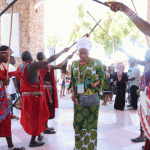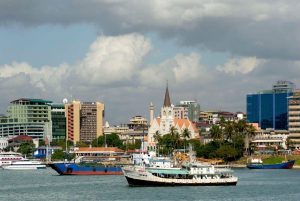Before and during the global Covid-19 pandemic, blockchain technology adoption continues to attract global adoption as companies, governments, multinationals and local businesses form alliances to seal existing loopholes in the management of goods and services across borders.
Key global aviation industry players plan to launch the Maintenance, Repair and Overhaul (MRO) Blockchain Alliance, the first industry-wide investigation into the use of blockchain to track, trace and record aircraft parts.
Even as airports grapple with little activity and major airlines having grounded their planes in a bid to control the spread of the coronavirus, the new alliance seeks to cover every aspect of the MRO chain, from part manufacture and repairs to logistics and smart contracts.
A smart contract is a digital pact containing the terms of agreement between a buyer and a seller being directly written into lines of code. The code and the agreements contained therein exist across a distributed, decentralised blockchain network. The code controls the execution, with transactions being trackable and irreversible.
Members currently include Bolloré Logistics, Cathay Pacific, FLYdocs, HAECO Group, Ramco Systems, Société Internationale de Télécommunications Aéronautiques (SITA), and Willis Lease Finance Corporation, supported by Clyde and Co.
The alliance, first mooted in 2019, aims to bring the various stakeholders together to set a global standard around the use of blockchain to track spare parts.
“In the coming months, our alliance will launch a proof of concept to demonstrate the use of blockchain to digitally track and record the movements and maintenance history of parts across a wide number of players,” reads a statement seen by the Business Daily.
A proof of concept is meant to determine the feasibility of the idea or to verify that the idea will function as envisioned.
These include airlines, lessors, original equipment manufacturers (OEMs) such as engine producers, logistics suppliers, and maintenance providers.
This tracking information will be vital to managing a complex logistics value chain that can span several stakeholders over the lifetime of each individual part.
“This initiative is part of SITA’s ongoing exploration of blockchain, a technology that we believe promises tremendous opportunity for streamlining the sharing and recording of information across the air transport industry,” says Matthys Serfontein, President of Air Travel Solutions at SITA.
Currently, there is no global database, leading to incomplete data sharing, and only partial digitalisation.
“The alliance believes that the use of blockchain will simplify and speed up parts tracking while enabling the secure sharing of information between industry stakeholders.” For the African market, making technologies such as blockchain available on a wide scale will be vital to support the growth and development of the aviation industry.
Africa is predicted by the International Air Transport Association (IATA) to become one of the fastest growing aviation regions in the next 20 years with an annual expansion rate of nearly five per cent, yet there are numerous challenges standing in the way of this growth.
Technology could enable governments and aviation industry stakeholders in Africa address many of the existing infrastructure challenges. Most notably, blockchain’s ability to securely store and share information on a digital ledger offers the opportunity for greater industry collaboration throughout the continent and facilitate more efficient decision making.
Multinational advisory firm PwC estimates that the use of blockchain could increase aerospace industry annual revenue by four percent while cutting MRO





